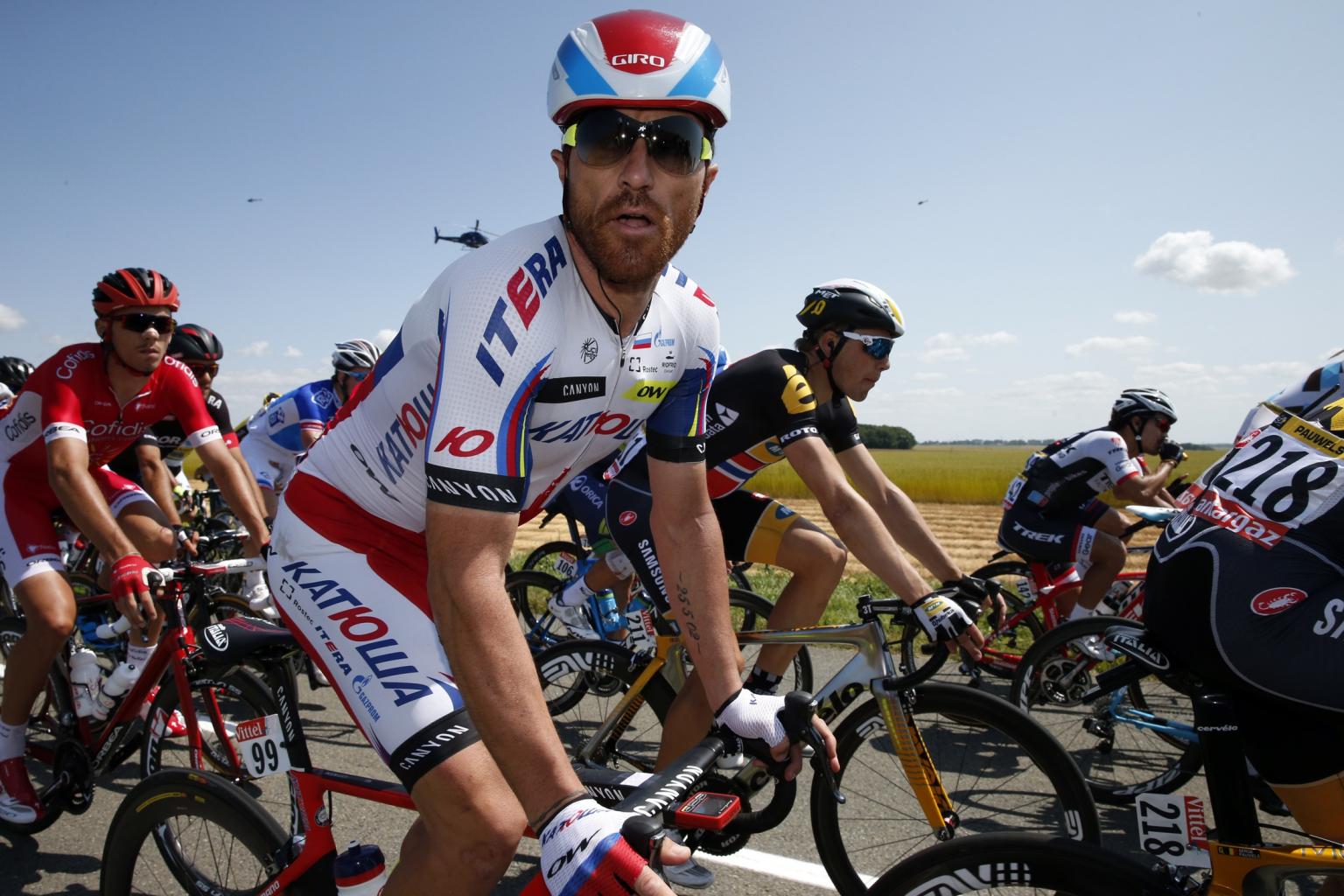Cycling: Italian rider Paolini fails doping test for cocaine
Sign up now: Get the biggest sports news in your inbox

Paolini in the Tour de France.
REUTERS
Follow topic:
FOUGERES, France (AFP) - Italian rider Luca Paolini has failed a doping test at the Tour de France, his Katusha team said Friday.
The 38-year-old tested positive for cocaine, which is not banned out of competition but is on the World Anti-Doping Agency's list of doping substances in competition.
Katusha spokesman Philippe Maertens told AFP the team had found out Friday evening that Paolini had tested positive on Tuesday, after the fourth stage.
The Russian team immediately removed him from the Tour.
"We're very surprised because cocaine is not a substance that improves performance," said Maertens.
Katusha then released an official statement confirming the suspension.
"Team Katusha has been informed tonight by the UCI that Italian rider Luca Paolini has been notified of an Adverse Analytical Finding. The presence of cocaine has been detected in a sample collected on July 7th.
"According to the UCI Regulations the rider has been provisionally suspended with immediate effect. In application of the Team policy the rider has been immediately withdrawn from the Tour de France.
"Bearing in mind the anti doping regulations, the team will wait until the analysis of the B sample has been conducted before taking any further action or making any further comment."
World cycling body the UCI also confirmed the news.
"The Union Cycliste Internationale (UCI) announces that it has notified Italian rider Luca Paolini of an Adverse Analytical Finding of Cocaine (Benzoylecgonine metabolite) in a sample collected in the scope of an in-competition control on 7 July 2015 during the Tour de France," said a UCI press release.
"The rider has the right to request and attend the analysis of the B sample.
"In accordance with UCI Anti-doping Rules, the rider has been provisionally suspended until the adjudication of the affair."
Paolini won the prestigious cobbled classic race Gent-Wevelgem in April, perhaps the best result of his career and coming at the age of 38.
He won a stage at the Vuelta a Espana in 2006 and another at the Giro d'Italia in 2013.
He also won a couple of semi-classic one day races, Brabantse Pijl in 2004 and Omloop Het Nieuwsblad in 2013.
Katusha have a sorry history of doping.
Christian Pfannberger and Antonio Colom tested positive for the banned blood-booster EPO in 2009.
Alexandr Kolobnev tested positive for the diuretic hydrochlorothiazide in 2011 while a year later Denis Galimzyanov was caught taking EPO.
The last rider to test positive for doping during the Tour, the most prestigious race in cycling, was Luxembourg's Frank Schleck on July 17, 2012.
He was banned for one year after low levels of the diuretic Xipamide were found in his system.
Cycling has a sorry record when it comes to doping and the Tour de France has been particularly hardly hit.
Lance Armstrong was stripped of his seven Tour de France wins from 1999 to 2005 after a US anti-doping investigation in 2012, relying on interviews with his former teammates at US Postal/Discovery Channel, found him guilty of taking a variety of doping substances including EPO and blood transfusions.
Armstrong later owned up to his years of cheating in an interview with high-profile American chat show host Oprah Winfrey in January 2013.
Another American, Floyd Landis was stripped of his 2006 Tour de France win for an adverse testosterone result while Alberto Contador, the champion in 2007 and 20009, lost his 2010 title after clenbuterol was found in his system.
Bjarne Riise, the 1996 Tour winner, later admitted to his use of EPO during his career, including 1996.

